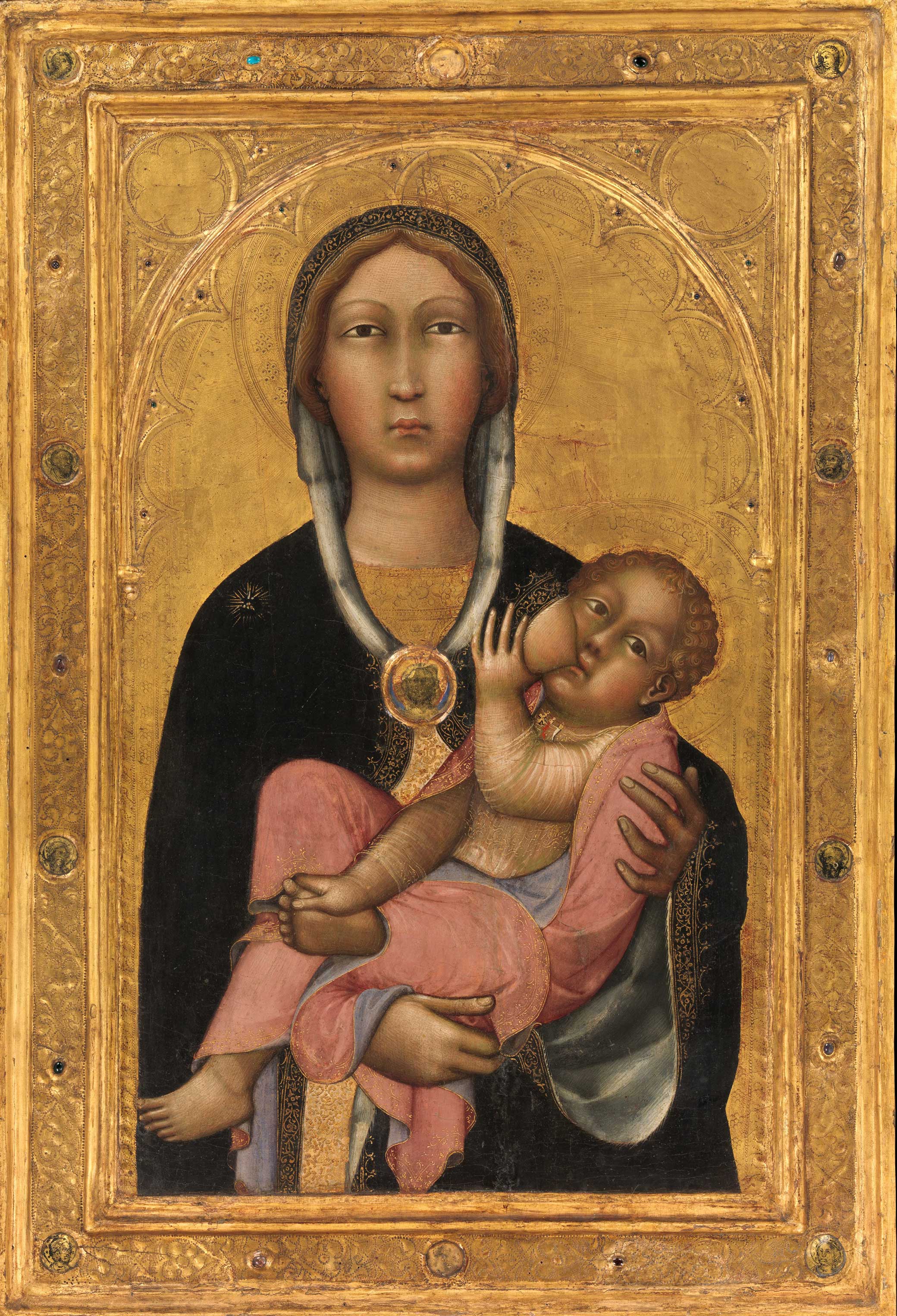
Madonna and Child, by Paolo di Giovanni Fei, c. 1370. The Metropolitan Museum of Art, bequest of George Blumenthal, 1941.
• “Book historians love the sloppy readers who would have pained librarians of old. Marginal notes supply priceless evidence of reader response to texts, while maniculae or pointing hands highlight key passages. If beeswax stains indicate liturgical reading, the humbler tallow wax suggests a late-night lay reader at home. Saint Boniface used a manuscript to shield himself when attacked by robbers; the slashes it suffered make it a relic of his martyrdom. Pages of many books are marred by dirty fingerprints, wine stains or, in one case, cat urine. An angry scribe in 1420 scrawled next to a smelly lacuna: ‘Confundatur pessimus cattus qui minxit super librum istum in nocte’ (‘a curse on the wicked cat that pissed on this book last night’).” (London Review of Books)
• The life of Margaret Wise Brown. (The New Yorker)
• “The Women Rulers Whose Reigns Reshaped the Medieval Middle East.” (SmithsonianMag.com)
• “Looking back at old stereotypes is a useful exercise; it can help illustrate the arbitrary nature of the concept of ‘race,’ and how such identities shift even as people insist on their permanence and infallibility. Because race is not real, it is malleable enough to be made to serve the needs of those with the power to define it, the certainties of one generation giving way to the contradictory dogmas of another.” (The Atlantic)
• The history of the Blackwell School in Marfa, Texas. (Los Angeles Times)
• The perils of making movies during a pandemic. (JSTOR Daily)
• “If you’re doing a digital humanities project, it exists in the world. It exists among a public that is beyond the academy and beyond Silicon Valley. And that means that there should be certain other questions that we ask, a different kind of ethics of care and a different morality that we bring to things.” (New York Times)
• “Archaeologists working along the southern coast of Peru have unearthed nearly two hundred reed posts adorned with human vertebrae. Sound macabre, but these spines on spikes may have been a response to the colonial-period looting of graves.” (Gizmodo)
• Medieval pregnancy advice: “Make sure your husband/lover does not have dirty or smelly feet when you sleep together. If you don’t, your child will be smelly their whole life.” (Medievalists.net)
• “The history of humanity is the history of fire, but you wouldn’t know that from seeing how people live today. Fire—natural and human-made—has been banished from view, to the point where we regard its return with great apprehension.” (The Guardian)
• This week in obituaries: Monica Vitti, Howard Hesseman, Cheslie Kryst, Diego Verdaguer, Arnie Kantrowitz, Uschi Gatward, Birju Maharaj, Jean-Jacques Beineix, Janet Mead, Shintaro Ishihara, Ronnie Fearn, Francis Jackson, John C. Koss, Bill Fitch, and Robin Herman.